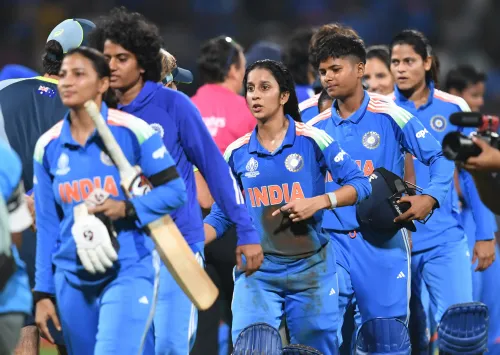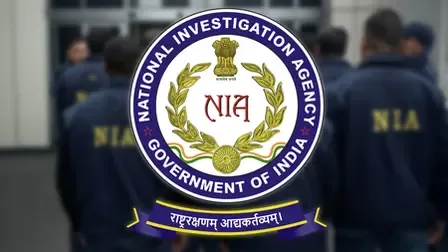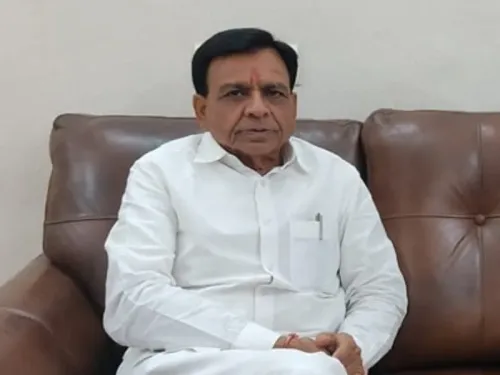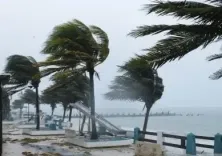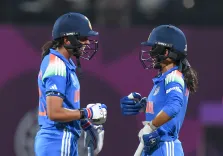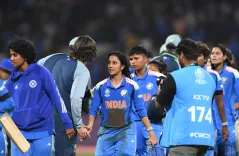Why is Punjab Assembly Refusing to Share Water with Haryana?
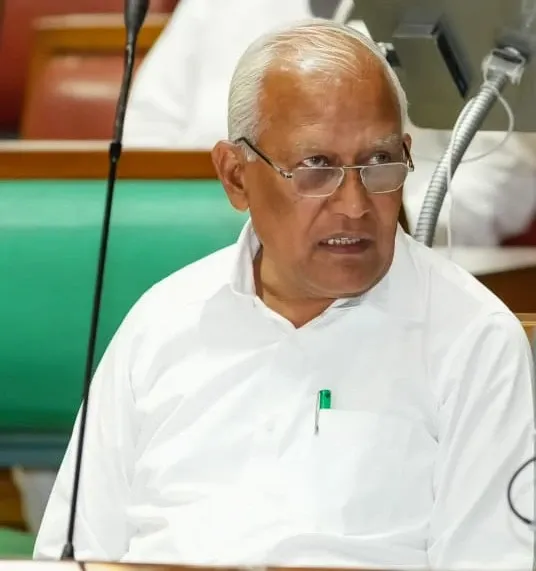
Synopsis
Key Takeaways
- Punjab refuses to share water with Haryana, asserting its rights.
- The BBMB is viewed as a tool of the Union government.
- Punjab aims to protect its water resources and improve irrigation.
- Haryana's request for water has increased but is deemed excessive by Punjab.
- The Dam Safety Act is seen as a threat to Punjab's water rights.
Chandigarh, May 5 (NationPress) The Water Resources Minister of Punjab, Barinder Kumar Goyal, expressed on Monday that the Bhakra Beas Management Board (BBMB) has devolved into a mere instrument of the Union government, emphasizing the necessity for its restructuring to protect the state's rights.
During the presentation of a resolution in the Legislative Assembly, which received unanimous support, Goyal asserted that the Punjab government is unwilling to share even a single drop of its designated water with Haryana.
“The 4,000 cusecs of water currently supplied to Haryana for drinking purposes on humanitarian grounds will remain, but no additional water will be distributed,” he stated.
Goyal criticized the recent unlawful and unconstitutional BBMB meeting convened by the BJP, reiterating that the BBMB needs restructuring, as it currently acts as a mere tool of the central government. “In these meetings, Punjab's voice is ignored, and its rights overlooked. Thus, the BBMB must be restructured,” he stated.
He pointed out the legal requirement for proper notification before calling different types of BBMB meetings, stressing that the BBMB often disregards the law by scheduling nocturnal meetings. The Assembly has urged the BBMB to adhere to the legal requirements.
Goyal raised a critical question to the Union government regarding the Sutlej, Ravi, and Beas rivers flowing exclusively through Punjab. “On what grounds is water from these rivers allocated to other states? When the water distribution treaty was signed in 1981, the recorded volume was significantly higher than what we see today. A new treaty for water distribution among states is essential,” he asserted.
He emphasized that the 1981 treaty delineates the water allocations for each state.
“The BBMB lacks the authority to alter this. Any decision made in a meeting to assign one state's rightful water to another would be illegal and unconstitutional. The BBMB must refrain from such unlawful decisions,” he added.
Goyal also condemned the BJP, pointing out that through the Union government, the Haryana government, and the BBMB, there have been attempts to infringe upon Punjab's rights. “By convening meetings through unconstitutional means, there is a move to divert Punjab's allocated water to Haryana. As of March 31, Haryana has depleted its water share. Now, the BJP seeks to redirect Punjab's rightful water to Haryana,” he declared.
He asserted that in the last three years, the Chief Minister Bhagwant Singh Mann-led administration has worked diligently to ensure water reaches every field in Punjab.
“We have undertaken extensive canal and watercourse construction. Previously, only 22 percent of Punjab's area was irrigated by canal water; now, this has increased to 60 percent,” he noted.
“Every drop of water from Punjab is invaluable. Punjab will no longer allocate its water to other states,” he emphasized.
He mentioned that on April 6, Haryana requested drinking water from Punjab, and Punjab generously supplied 4,000 cusecs from its allocation, adhering to the teachings of our Gurus about the virtue of offering water to those in need.
According to the Water Resources Minister, Haryana, with a population of 3 crore, requires 1,700 cusecs of water for drinking and personal needs. However, Haryana has requested 4,000 cusecs, which Punjab provided on humanitarian grounds. Now, Haryana claims it needs 8,500 cusecs. Punjab does not have the surplus to accommodate this demand, and the BJP's unconstitutional BBMB meeting resolution mandating Punjab to provide water to Haryana is unacceptable.
He categorically rejected the Dam Safety Act of 2021 and urged the Union government to repeal it without delay. He denounced the Dam Safety Act as an infringement on Punjab's rights, asserting that it empowers the Union government to exert direct control over rivers and dams within states, even those entirely located within state borders.
“This fundamentally contradicts India's constitutional framework and represents a direct challenge to Punjab's constitutional rights regarding water,” he concluded.

